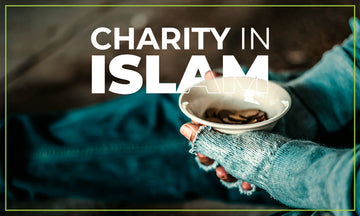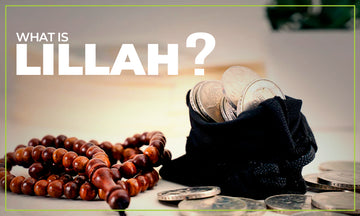When it comes to Sadaqah, there is nothing wrong with giving it to your sisters and contributing to their household expenses since Sadaqah is broad.
You can give charity to your brothers and sisters if they are poor, and you are not obliged to spend on them because you will not inherit from them or you cannot afford to spend on their maintenance.
It is also permissible to give Zakat to them if they have debts either you are obliged to spend on them, or not paying off debts is not obligatory for the one who spends on maintenance for another person.
Someone asked Shaykh Muhammad Salih al-‘Uthaymin (may Allah have mercy on him) about giving Zakat to his brother and sister.
He replied:
"It is not permissible because Zakat cannot be paid to protect wealth. If giving Zakat means that you will waive your duty to him, such as if you must spend on his maintenance but give him Zakat so that you save money and do not spend on him, then this is not permissible.
In any case, if it does not imply that your obligation towards him will be postponed, for example, on the off chance that you do not have to spend on his upkeep since you would not acquire from him or because you can not stand to spend on him as well as your own family, or you are giving him cash to take care of an obligation that he owes yet can not take care of, then, at that point, it is reasonable for you to give your zakah to him, maybe you ought to give it to him rather over any other person since providing for him is both a demonstration of a noble cause and maintaining the ties of connection." (Majmu’ Fatawa Ibn ‘Uthaymin, 18/422, 423)
Giving Sadaqah to Father and Mother
Because he is required to provide for his parents and children by Islamic law, a Muslim cannot give Sadaqah or Zakat to them. Whether you are a woman, a man, or a Muslim, you are obligated to provide your parents with the necessities they require to cover their daily expenses.
Giving Sadaqah to Wife
According to the Prophet, "When a Muslim spends money on his home to obtain compensation from Allah, that is considered Sadaqah."
There are many ways to give your wife Sadaqah, such as taking care of her needs and being sincere and compassionate.
Giving Sadaqah to Poor Relatives
Giving Sadaqah to relatives is the finest type of Sadaqah.
As our beloved Prophet declared: "The best of charity is to your needy families."
Is it necessary for relatives to be poor to count as Sadaqah?
No. Sadaqah has only three requirements:
- That Sadaqah comes from the abundance you have legally acquired or an activity you can passably do. Remember that when it comes to Sadaqah, lawful gain means that you did not violate any restrictions that Allah and His Messenger, peace be upon him, have placed on your ability to acquire that money or possession.
- That you put it to good use. It means doing good things that Allah and His Messenger, peace be upon him, have ordered, encouraged, or allowed.
- That you give it with the sincere intention of pleasing only Allah.
Does Sadaqah to a relative have higher spiritual value for its giver?
Yes. Three measures increase Sadaqah’s value in your Heavenly Scales:
- The closeness of the family,
- The recipient's urgent need
- The giver's level of demand for their wealth
Describe the significance of Sadaqah in light of the pressing need.
The Quran and the Prophet, on him, be harmony, determine five general human states of crisis need for Sadaqah:
- Impoverishment: Insufficient wealth for food, clothing, shelter, utility access (water, electricity, heat, and air conditioning), and basic life necessities (such as transportation, health insurance, and educational requirements in our day and age).
- Bondage: Enslavement (yes, it still exists), being trafficked, captivity, including imprisonment, and addiction (in the opinion of some)
- Debt: Financial burden incurred for essential life needs and means of sustenance
- Displacement: Whether caused by a natural disaster, oppression, war, civil conflict, or societal imbalance, being stranded without means, migrancy, exile, or homelessness are all examples of this. Orphanhood and widowhood go under this class.
- Godly Striving: This includes believers exerting themselves in God's service to establish His religion, mercy, and justice, as well as attempting to alleviate the effects and underlying causes of the previous four categories.
The Quran, the last heavenly Divine revelation to man, and its Prophet Muhammad, on him, be peace, the remainder of the prophets shipped off humankind, order giving anything Sadaqah noble cause we can assist the individuals who with going under these critical classes. The motivation behind Sadaqah for those persevering through these life crises is not just to empower them to make due, in addition, to bring them into a state of accomplishing free adequacy in the pride of their necessities.




